Suan Dusit University (SDU) actively promotes ecosystem education and biodiversity awareness through experiential learning and community-based environmental programmes. In 2024, the university used Hom Kachon Farm, located at its Suphan Buri campus, as a living laboratory for teaching and demonstrating sustainable agriculture, ecosystem conservation, and the relationship between humans and nature under the principles of the Bio-Circular-Green (BCG) Economy. These initiatives reflect SDU’s long-term commitment to integrating education, research, and community outreach to enhance understanding of wild flora, fauna, and natural ecosystems among local and national communities.
Throughout the year, the Institute for Community Innovation, in collaboration with the Institute of Research and Development and Lao-or Uthit Demonstration Schools, organized more than 20 ecosystem learning activities, reaching over 8,000 participants including students, teachers, farmers, government officials, and members of the public from across Thailand. These programmes strengthened environmental literacy and encouraged participants to engage directly with local biodiversity and sustainable land use practices.
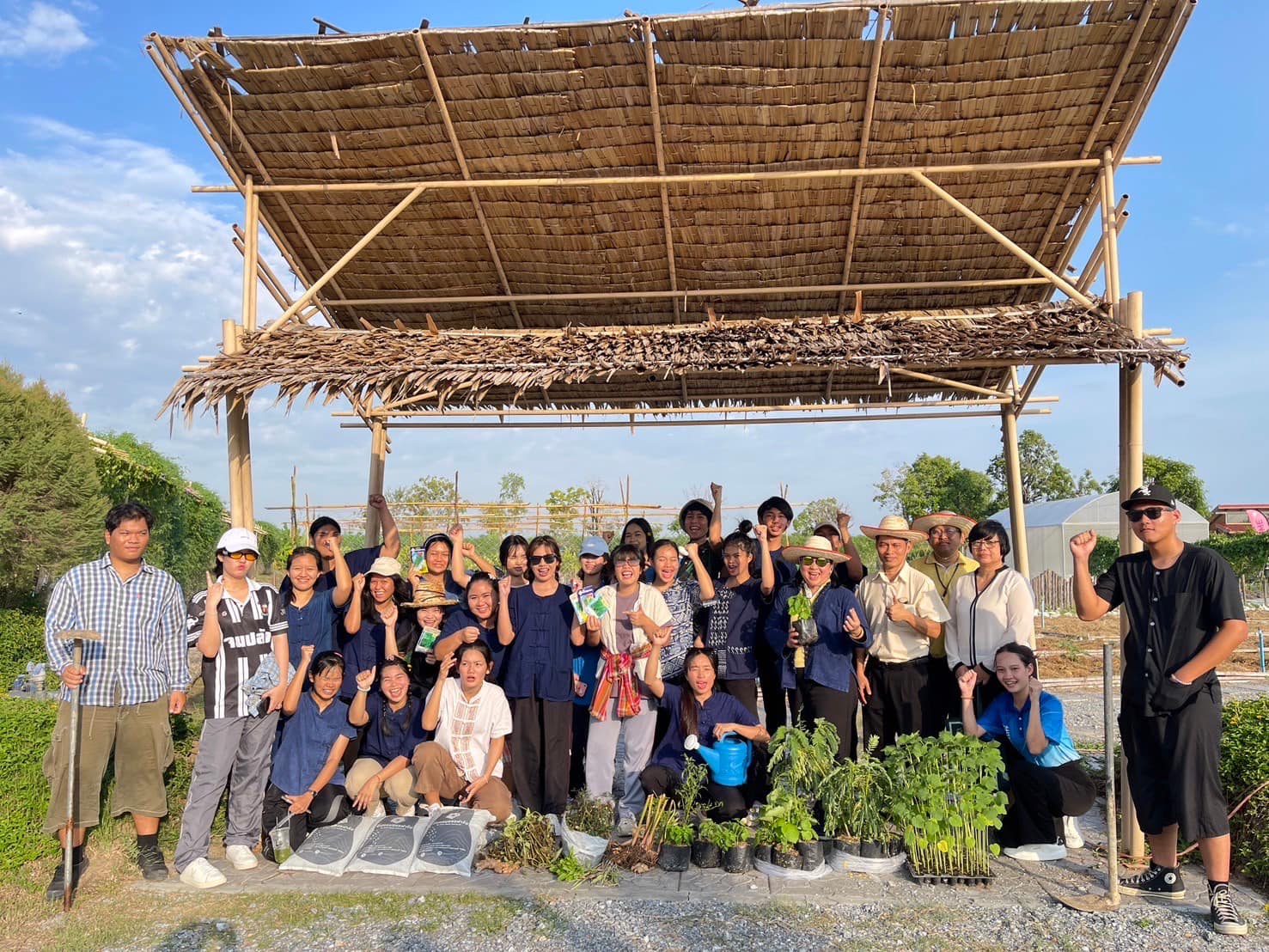
A key initiative, the Hom Kachon Model Project, provided field-based training on “Safe Agriculture Practices and Smart Farming Technologies” at Hom Kachon Farm. Participants from various provinces, including Phuket, Krabi, Samut Prakan, and Suphan Buri, learned about Good Agricultural Practices (GAP), ecosystem-based farming, and the cultivation of crops such as melons, cherry tomatoes, and lettuce in smart greenhouses. The project also featured hands-on lessons on the Plant Genetic Conservation Project under the Royal Initiative of Her Royal Highness Princess Maha Chakri Sirindhorn (RSPG), where participants explored rare native plant species and their ecological roles. This activity exemplified the connection between education, sustainable agriculture, and biodiversity conservation.
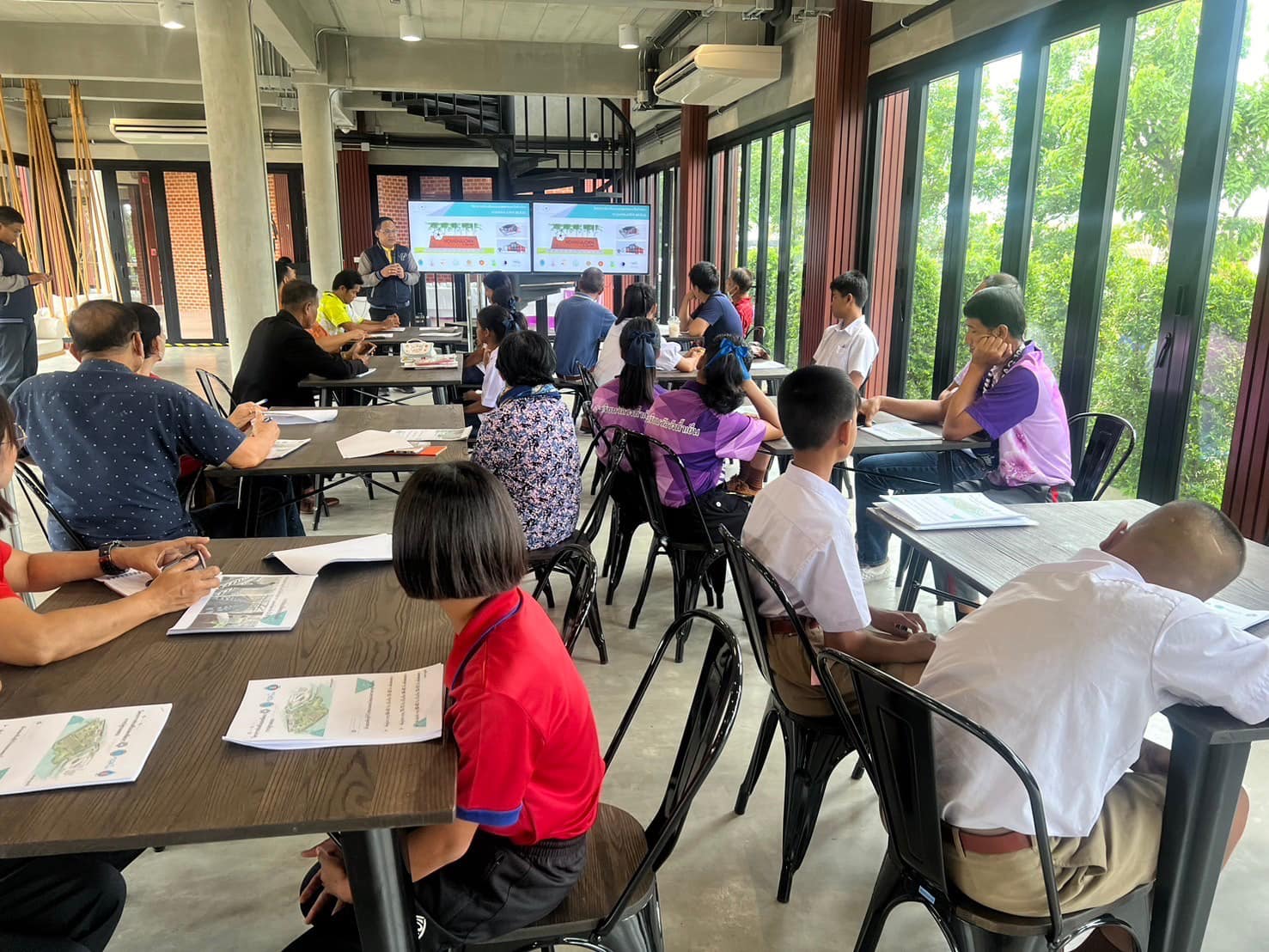
Another major component was the Workshop on Organic Fertilizer and Growing Media Production, which trained 100 participants to produce five types of organic fertilizer and five types of natural growing materials. The workshop emphasized the sustainable use of biological resources and the reduction of chemical inputs, supporting soil conservation, water management, and terrestrial ecosystem health. Participants were encouraged to apply this knowledge in their own farms, reinforcing the principle of community engagement for sustainable development.
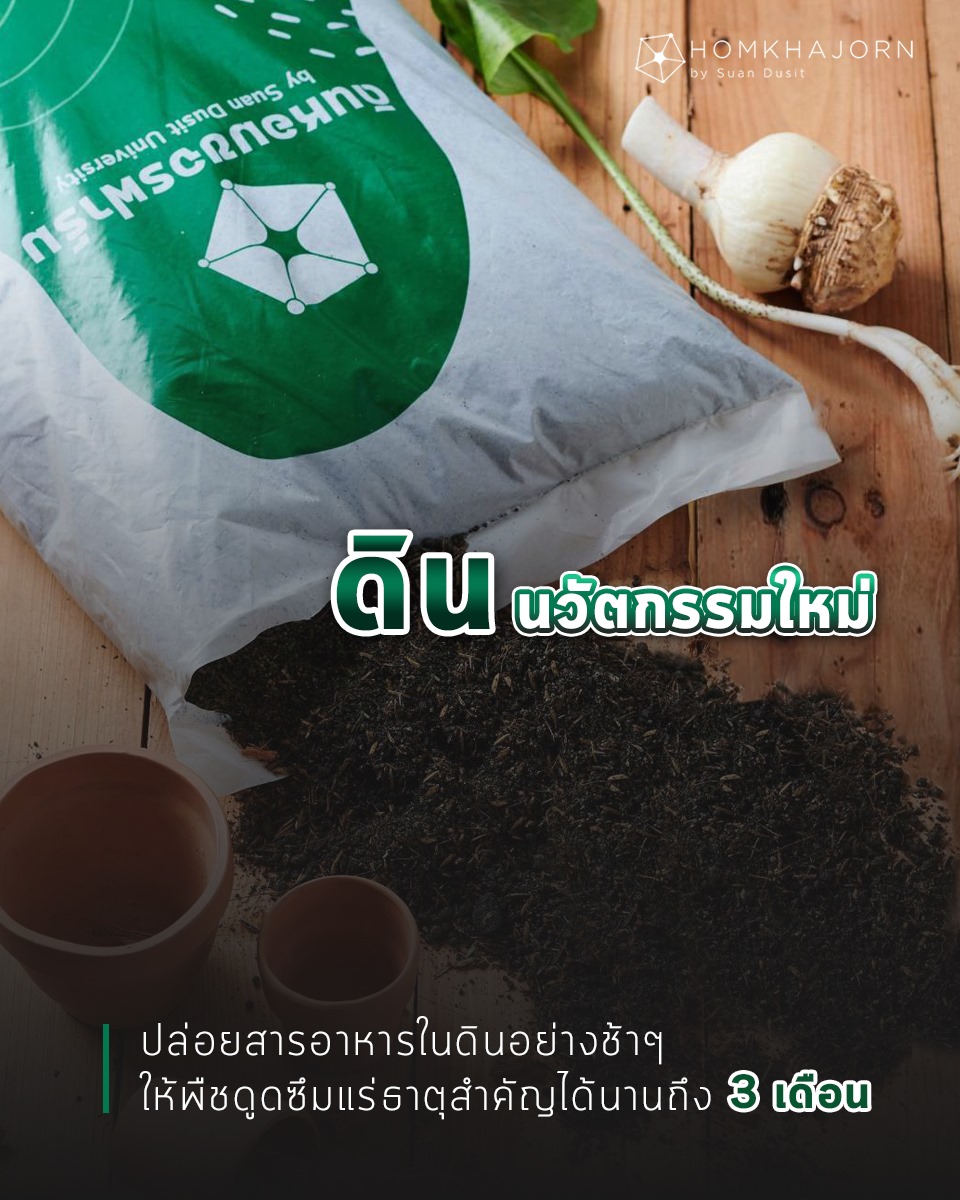
Within the Faculty of Education, ecosystem learning has been embedded in teacher training programmes through the course “Developing Environmental Awareness and Responsibility”. First-year students participated in practical training at Hom Kachon Farm, learning how to grow vegetables and produce organic compost. The programme fostered teamwork, environmental responsibility, and an appreciation for sustainable resource management, aligning with the concept of Education for Sustainable Development (ESD).
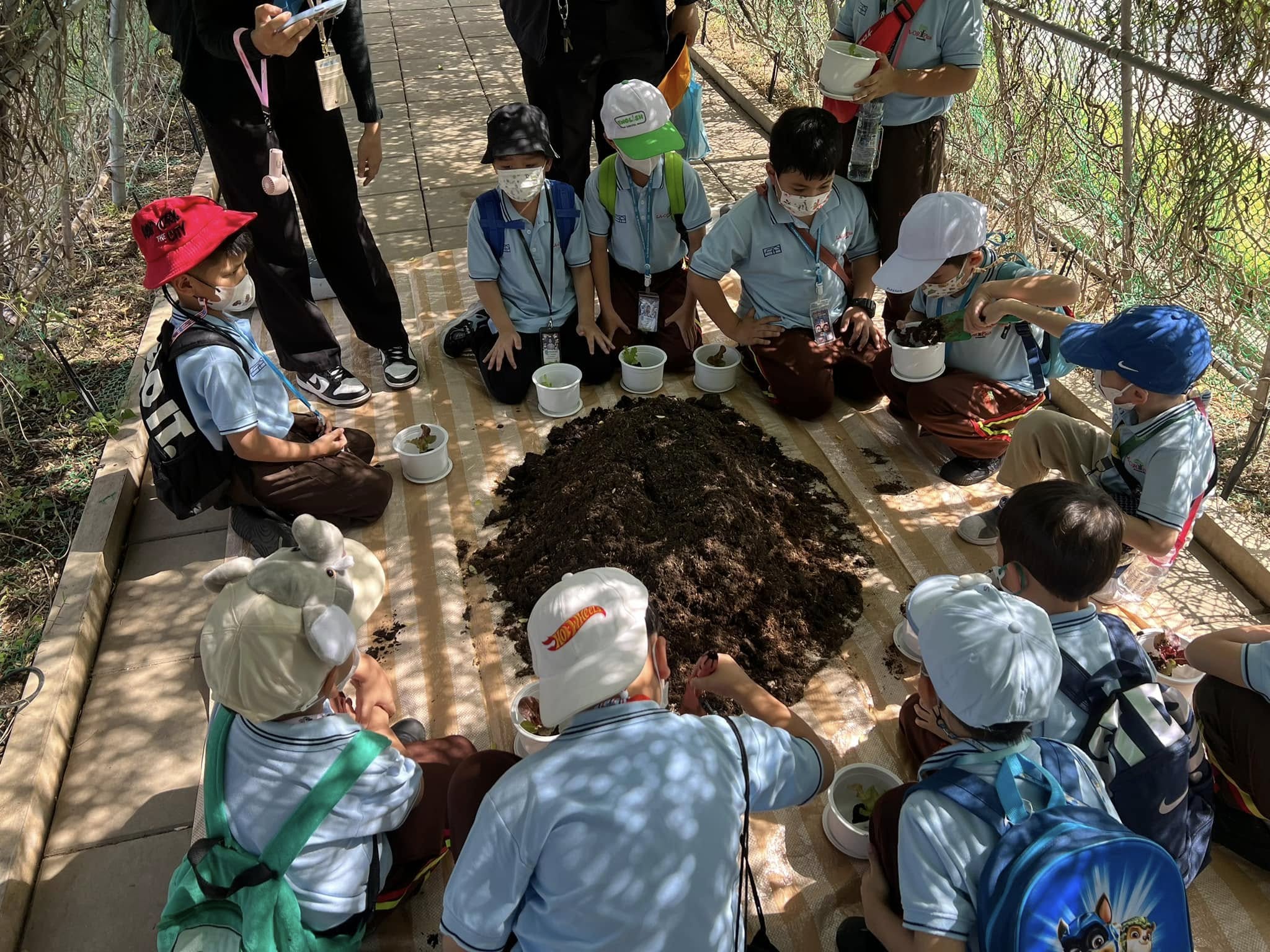
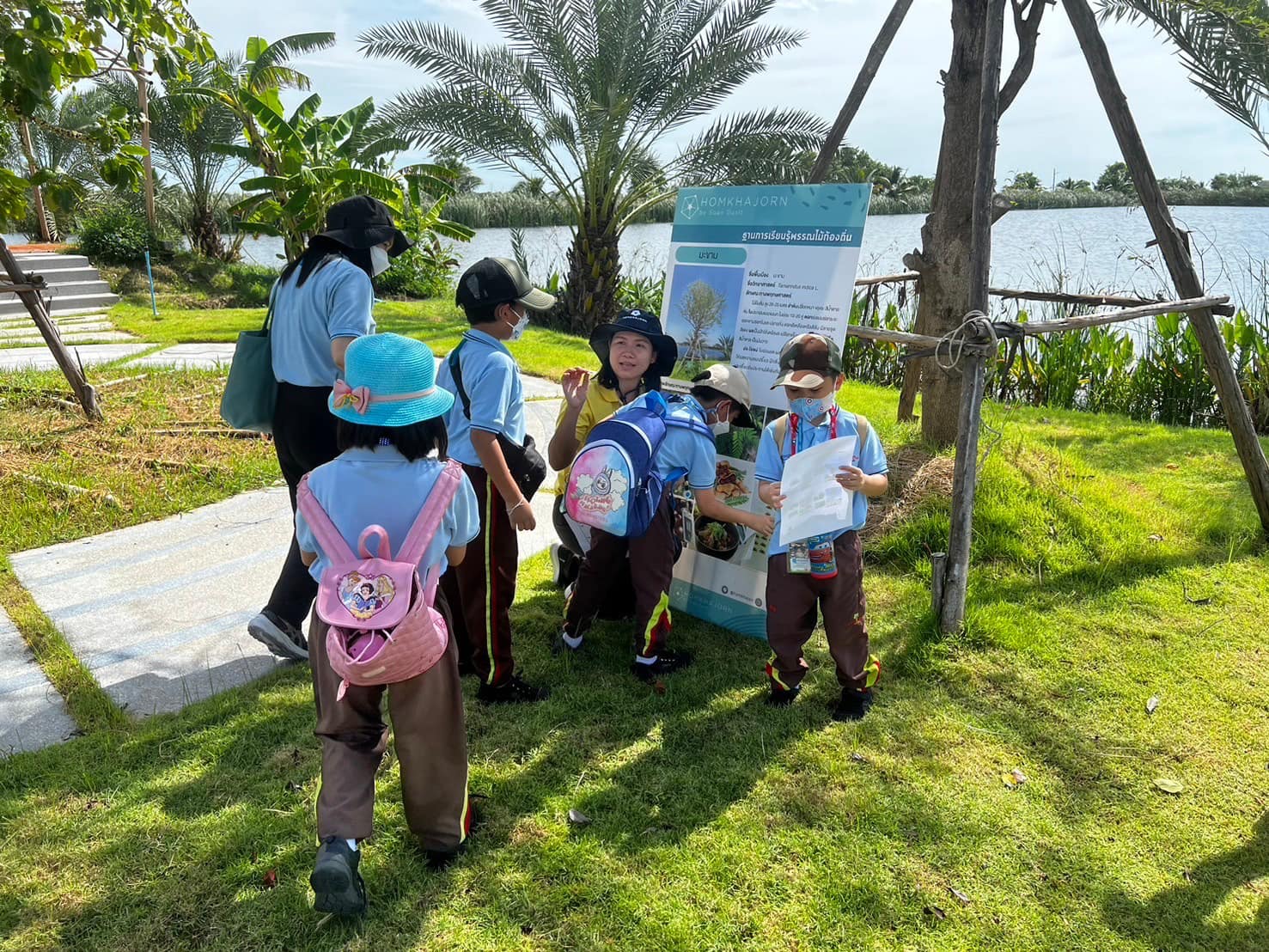
For younger learners, the Lao-or Uthit Demonstration Schools offered interactive learning experiences titled “Ecosystem and Native Plant Learning Bases.” Kindergarten and primary students learned how to plant vegetables, mix soil, and identify rare plant species cultivated under the RSPG initiative, such as Elaeocarpus hygrophilus (Maput), Schleichera oleosa (Masang), Dillenia indica (Elephant Apple), and Melodorum fruticosum (Lamduan). Activities such as the “Walk Rally: Discovering Local Fruits” encouraged children to explore local biodiversity through playful and creative approaches, strengthening early environmental stewardship and biodiversity appreciation.
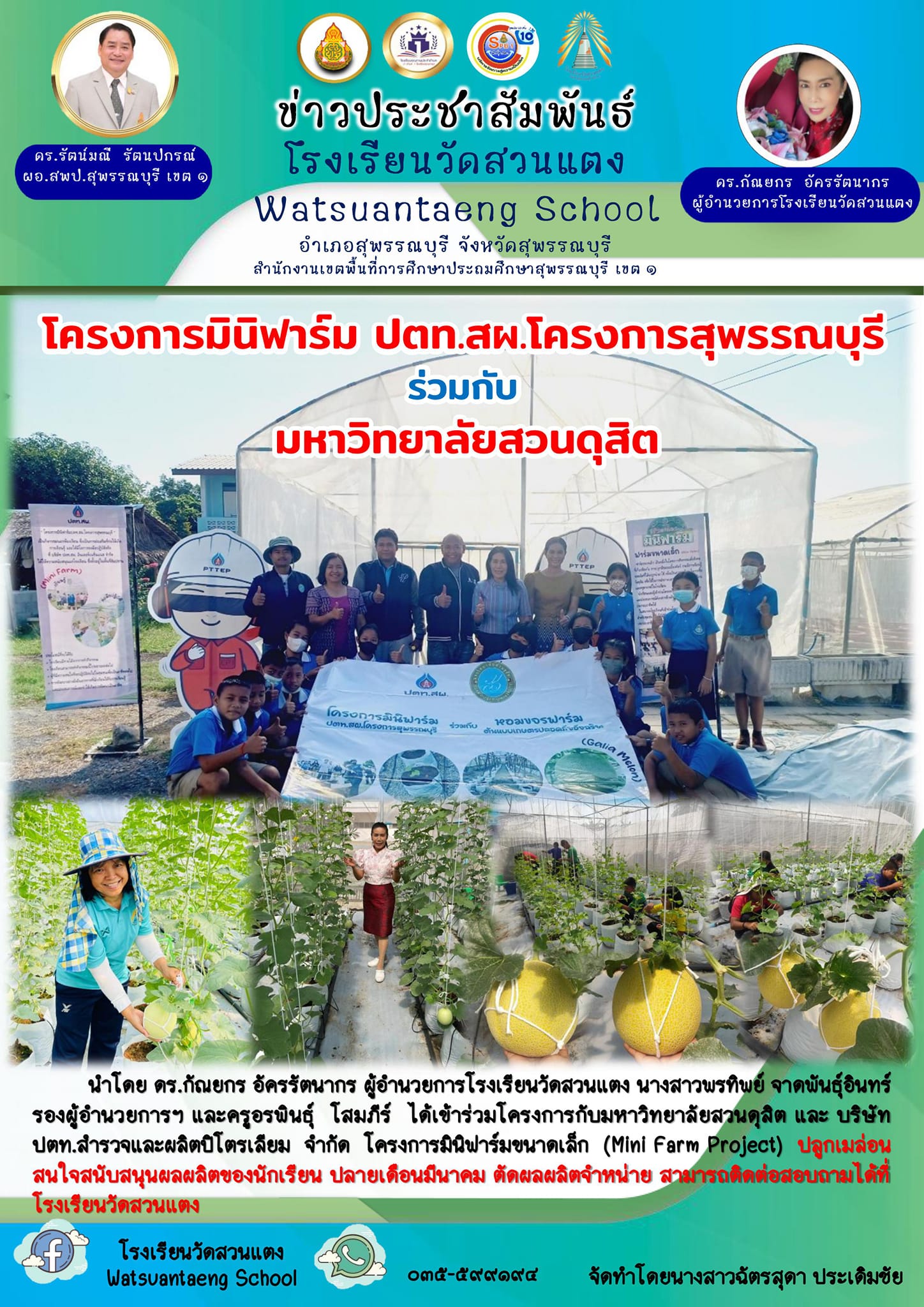
SDU also collaborated with PTT Exploration and Production Public Company Limited (PTTEP) to launch the “Mini Farm Project – Suphan Buri”, which brought sustainable agriculture education to local schools. Teachers and students—about 150 participants—received training in cultivating melons, cherry tomatoes, and lettuce in smart greenhouses, fostering awareness of ecosystem-friendly farming and climate-resilient agriculture at the community level.
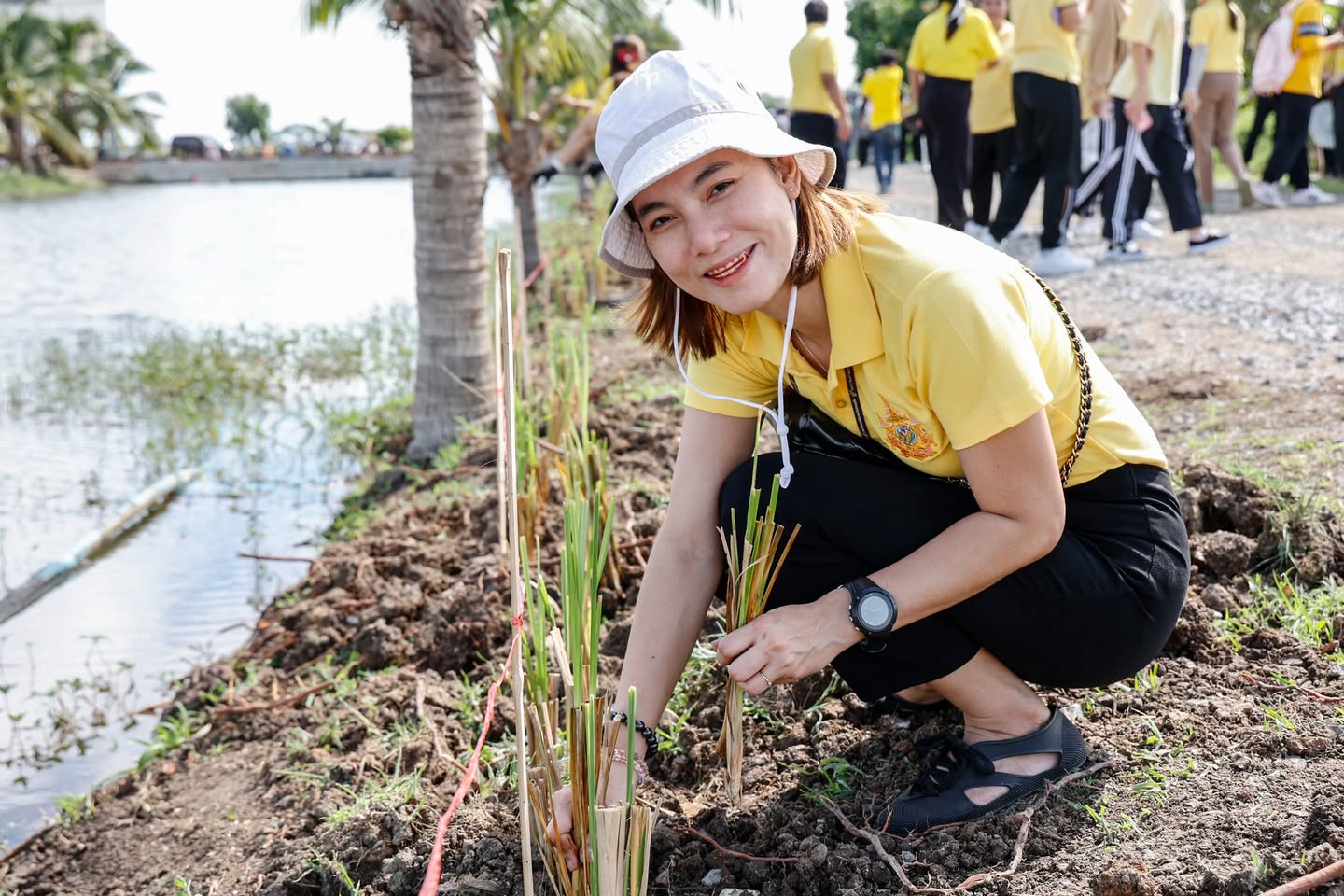
Additionally, SDU organized a royal tribute activity titled “Vetiver Grass Planting for Soil and Water Conservation”, in which more than 30 participants, including university staff, students, and local residents, took part in planting vetiver grass to prevent soil erosion and promote land rehabilitation. This event combined environmental education with cultural values, reflecting SDU’s philosophy of learning through action and collective responsibility for the environment.
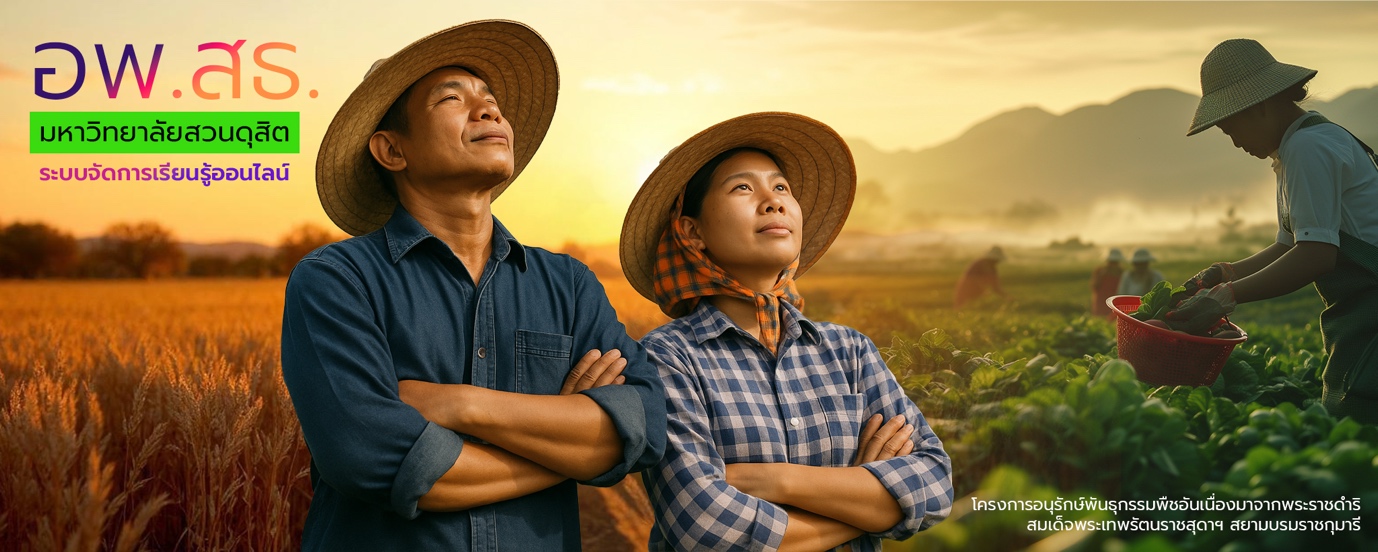
Beyond on-site learning, SDU expanded access to ecosystem education through the development of a digital course, “Safe Agriculture and BCG Principles”, and 12 online e-learning modules accessible via http://rspg.dusit.ac.th and https://www.d-course.com/. These resources allow teachers, students, and citizens nationwide to engage in ecosystem and biodiversity education in flexible and innovative ways.
Collectively, these initiatives illustrate how Suan Dusit University uses education as a key driver for ecosystem preservation and sustainable community development. By linking people, communities, and nature through learning-by-doing, the university enables participants—from young students to farmers—to acquire knowledge, hands-on experience, and a deeper appreciation of the natural environment.
Through continuous educational engagement, Suan Dusit University demonstrates the transformative power of education in fostering biodiversity awareness, ecosystem conservation, and sustainable resource management, contributing to a culture of coexistence between humans and nature that supports a truly sustainable future.
